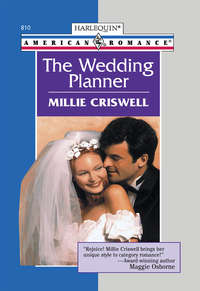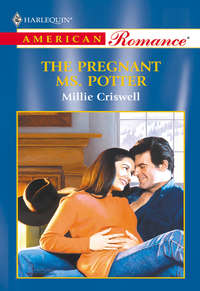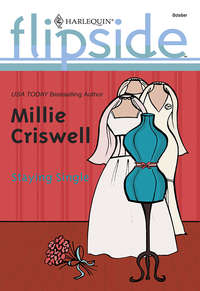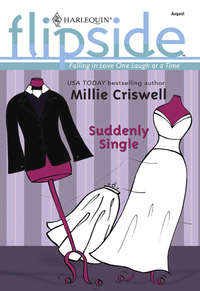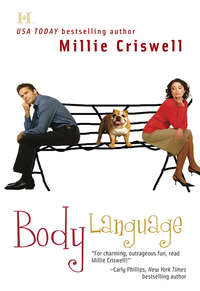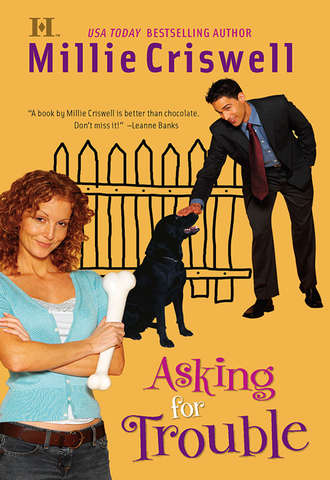
Полная версия
Asking For Trouble
Before he could utter another word she bolted from the kitchen with lightning speed, not remembering about the milk for Stacy until she’d reached the haven of her room. But she had no intention of going back down.
There was no way she was going to face him again. Not until she knew who was buried in her basement.
CHAPTER FOUR
AUBREY FONTAINE PRIDED himself on having an uncluttered mind and a reasonably fit body, though his penchant for sweets, especially Krispy Kreme doughnuts, rendered him somewhat overweight. Still, for someone nearing fifty he wasn’t in bad shape.
A man used to giving orders and having them obeyed, he wasn’t accustomed to performing mundane chores, doing his own laundry, cooking meals or cleaning his apartment. He had a staff to do that. So, as he stared at the stacks of cardboard boxes, piles of old newspapers and magazines, and an assortment of what he considered first-rate junk that he’d found lying about his deceased mother’s spare bedroom, Aubrey was not pleased about completing the menial tasks before him.
Isabel Fontaine had died from colon cancer five days before—a blessing, since the old soul had suffered cruelly toward the end. And though he’d done what he could to ease his mother’s pain—excellent doctors, full-time duty nurses and a private room at the hospital—in the end it had all been for naught. Money couldn’t save his mother. Only God could do that, and He had chosen not to.
Brushing impatient fingers through his thin graying hair, Aubrey heaved a sigh. He didn’t have time to deal with this right now. He was a busy man, had a corporation to run and important financial deals in the works. He made money from investing, not from performing the duties of a garbageman. But he’d promised his mother on her deathbed that he would go through her private papers and attend to dispersing what little money she’d saved to her cousins, and that’s what he intended to do.
Isabel had been a good mother, if a somewhat distant one, and Aubrey would honor her memory and do what he had promised. A man was only as good as his word. His many business dealings had taught him that. One didn’t get to be a successful CEO of a company without having some integrity. Of course, he never allowed that integrity to interfere with making money. An honest man could still be successful; he just had to be smarter than the competition, and he had to be willing to look opportunity in the face and jump on it.
Aubrey never allowed anything to interfere with making money.
Removing his suit jacket and tie, he set them on a nearby chair, rolled up the sleeves of his custom-made shirt and began wading through the mess, tossing old magazines and newspapers into the trash receptacle, and then removing his parents’ old clothes that he’d found hanging in the closet. Chester Fontaine had died of a heart attack when Aubrey was twenty, and he gathered his father’s suits, shirts and ties and added them to the pile he would donate to the Good Will, or one of the veterans groups.
Aubrey had never served in the military—a bad back had designated him 4F—but he always tried to do what he could for those less fortunate than himself. Besides, he needed all the write-offs he could get. Damn bastards at the IRS always had their hands in his pockets.
His cell phone rang. His assistant was on the other end, and she sounded frantic. Though extremely competent, Myra Lewis leaned toward hysteria, which he found annoying and very nonproductive. “Tell that asshole Connors there’ll be no deal unless he meets our terms,” he told the high-strung woman. “For chrissake, Myra, I’m not running a charitable organization! He either takes what I’ve offered for the property or the deal is off. Do you understand?” She stuttered that she did, and he clicked off, shaking his head in disgust.
He couldn’t get through an hour without that cursed cell phone ringing. For all its convenience, the damned invention definitely had its drawbacks. In the old days, a man could escape from the office and steal a few hours of peace and quiet, now he just carried it with him. Call forwarding, e-mail, photographs…There was no end to what those blasted phones could do.
Turning his attention toward the window and the small maple desk sitting beneath it, Aubrey heaved a sigh, dreading what came next. He switched on the metal lamp, sat down and began sorting through the clutter.
In the center drawer he found his mother’s bank-book resting on top of her insurance policy. He was stunned to discover that she had nearly eight thousand dollars in savings, most of which he had provided over the years, to supplement the pittance his father had left.
“Well, well, Mama, you are full of surprises,” he muttered, knowing how happy her vulture cousins would be when they discovered how thrifty Isabel had been. As primary beneficiary of her insurance policy, Aubrey stood to inherit a tiny bit more—ten thousand dollars, which would just about cover the cost of her funeral and burial.
Tossing the policy aside, he pulled out a brown leather portfolio buried at the bottom of the drawer and opened it to discover several yellowed newspaper clippings from The Mediocrity Messenger. He’d never been to Mediocrity, but knew it was a small rural town about a three-hour drive from where he presently resided, in a suburb outside of Philadelphia.
Aubrey didn’t do rural. He was a city boy, through and through. The smell of cow shit gave him hives.
The first clipping was about a historic house that was owned by a family named Swindel. Searching his memory, he tried to remember if his mother had ever mentioned the name and was fairly positive she hadn’t.
He prided himself on remembering names and minute details. It was essential in his business. The little things, the seemingly unimportant things that could make or break a deal, were what counted. And he didn’t lose many deals.
The owner of the house appeared to be a member of the clergy. The paper referred to him as the Reverend Swindel of St. Mark’s Methodist Church. Aubrey didn’t believe in organized religion or luck. Smart people made their own luck. And as far as religion was concerned, he didn’t need some pious man of God pointing out his sins. He knew full well what they were; he just opted not to atone for them.
Setting that clipping aside, Aubrey picked up the next, torn from the society pages, and read:
“The Reverend and Mrs. Josiah Swindel are pleased to announce the engagement of their daughter Iris to Lyle McMurtry, son of David and Louise McMurtry, of the town. A spring wedding is planned.”
It was dated May 1952.
“I know you had a reason for saving all this junk, Mama, but I have no idea why.” He was about to replace the clippings when he noticed the corner of an official-looking document peeking out from some old letters she had saved.
Curious, Aubrey scanned it to discover it was a birth certificate. He spotted his name at the top of the document, which was odd because his birth certificate presently resided in a safe-deposit box at Merchants Bank. The certificate read Aubrey Swindel, not Fontaine.
More than a little confused, his eyes widened as he read the names typed beneath his: Mother’s name: Iris Swindel. Father’s name: Lyle McMurtry.
Swindel. As the meaning became clear, his face turned an ugly shade of purple.
“Sonofabitch!” He’d been deceived. His whole life had been nothing but one goddamn lie after another.
“Jesus H. Christ, Mama! You really put one over on me, didn’t you, you sly old bitch?” He continued staring at the document in disbelief. “How could you have deceived me like this, made me feel like such a goddamn fool? Are you having a good laugh over this? Are you, Mama?”
Aubrey hated surprises and he’d just been handed a whopper. No wonder the old woman had insisted he look through her papers. She wanted him to find this, wanted him to know that he’d been adopted and who his real parents were.
“But why didn’t you just come out and tell me? Why did you hide the truth all these years?”
Because he’d been born a bastard, that’s why. But then, there were those who’d been calling him that for years.
Crumpling the paper, he tossed it against the wall, and then kicked the garbage can so hard it upended, the contents spilling everywhere. He shouted every vile epithet he could think of at his parents, or the people he’d thought were his parents. He wasn’t sure of anything anymore.
When his temper cooled, curiosity began to get the better of him. Why had Iris Swindel and Lyle McMurtry given him away? Why hadn’t they wanted him enough to keep him? Was he so unlovable, so hideous a human that even his own mother hadn’t wanted him?
He needed answers to his questions, and the only way to get them was to go to Mediocrity and see if his birth parents were still alive. If so, they had some explaining to do.
HARD WORK AND KEEPING BUSY had always helped Beth clear her mind. Her aunts were fond of saying that idle hands were the Devil’s playground. To keep her mind off the problem in her basement, she’d decided that picking pumpkins and gourds from her garden would serve her quite nicely.
Beth was tired this morning; she hadn’t slept very well the previous night. Thoughts about dead men buried in her basement and dreams of Dr. Bradley Donovan finding out about them had crept into her subconscious. Counting sheep hadn’t helped and neither had studying the numerous holes in the ecru lace canopy over her bed.
When she had finally drifted off, Beth encountered bright blue eyes, dimpled cheeks, muscular arms and strong hands capable of healing. And she spent a great deal of time wondering what it would be like to be held in those arms, to feel Brad’s hands healing her aching body and ailing heart.
To dispel those provocative but totally unwelcome thoughts she had tried thinking about Greg, the disastrous marriage they’d had, his infidelity, and all the misery that being involved with a man had caused her. But she knew deep down that Brad Donovan was nothing like the duplicitous, uncaring and judgmental Greg Randall. That would be like comparing a Boy Scout to Hannibal Lecter.
Greg had chewed up her heart and spit it out when it was no longer palatable, and he hadn’t even bothered to wash it down with a nice glass of Chianti. Based on what Brad had said about his marriage to Carol, she didn’t think he was capable of such cruelty. Of course, he was still a man and that said a lot about why she needed to keep her distance. Not to mention that his father might still be an unwilling guest in her establishment!
The ground was cold where she knelt in the dirt, pulling weeds from between rows of vegetables and gathering up the items she needed for her autumn display. She looked up at the clear blue sky, the sun’s warmth feeling glorious on her face.
“It’s a pretty day, isn’t it, Buster boy?” she said to the dog lying next to her, who thumped his tail in agreement. Placing several small pumpkins in the wicker basket, she cocked her head when she heard someone approach. The animal rose to his haunches and then wagged his tail as the visitor drew near.
Shielding her eyes, Beth glanced up to find Stacy Donovan standing over her. Though she smiled in greeting, she was not in the mood to spar with the ill-tempered young girl this morning.
“What’re you doing?” the girl demanded, bending down to pat the dog, who responded by licking her hand furiously, making Stacy giggle. It was the first time Beth had seen her smile, and it transformed her pretty face.
“I’m gathering pumpkins and gourds, which I’m going to use to decorate the front porch.” Beth always festooned the house for the various seasons and holidays, autumn being one of her favorite displays. She used corn husks, scarecrows and pumpkins to adorn the porch and handrails. Admittedly, she was a bit behind schedule this year.
Stacy made a face. “That’s stupid. Why would you want to do that?”
“So the inn will look pretty. Would you like to help?” The offer was pure reflex, not an actual desire to have the kid around. When Stacy shook her head, Beth almost breathed a sigh of relief.
“I’m bored, but not that bored! Besides, my dad’s paying good money to stay here. Why should I do your work for free? I’m a guest.”
“You said you were bored, so I thought you might like something to do, that’s all. You’re certainly not obligated to help. Don’t you like decorating for the holidays? It’s one of my favorite things to do.”
A haunted look in her eyes, the girl shrugged. “I used to before my mom died. Dad doesn’t bother with it now. We didn’t even put up outdoor lights last Christmas. And he bought a fake tree. We never had a fake one when Mom was alive. She hated them.”
“I see.”
“No, you don’t! You don’t know what it’s like to lose a mom, so don’t say you do.”
Rising to her feet, Beth dusted off her jeans and tried hard to keep her temper in check. The child was like a wounded animal, striking out at everything she came in contact with, and she had to keep reminding herself of that.
“You’re right. My mom’s still alive and living in San Francisco, but my dad left when I was ten, so I think I know a little something about losing a loved one.”
The child’s expression softened momentarily. “Did he die?”
She shook her head. “My parents got divorced. But my dad may as well have died because I haven’t seen him in many years.” Her mother had chased the man away with vile invectives and threats of public humiliation. And even if her father had deserved Margaret Shaw’s wrath, Beth still blamed the woman for forcing him out of her life.
But she blamed her father even more for never contacting her or making the effort to see her. She considered his behavior cowardly and unjustified. Beth had often wondered if her father had remarried and started a new family, if he had other children to bestow his love and affection on. The notion had bothered her a lot at first, but now she’d grown indifferent, though there were times, if she allowed herself to think about it, it still hurt.
She had given her heart to two men, and they had both crushed it before abandoning her. She didn’t intend to make that same mistake again.
Stacy scoffed. “That’s not the same. My mom’s never coming back. You’ve got a shot at seeing your dad again.”
Beth thought that highly unlikely but chose not to argue the point. “You miss your mom a lot, don’t you? Your dad said—”
Blue eyes flashing angrily, Stacy balled her hands into fists. “You stay away from my dad! He’s not going to marry anyone, so don’t get any ideas. A lot of women have tried to get him, but he loves my mom and no one else.”
“I can assure you, Stacy,” she began, taking a deep, calming breath, “I have no desire to marry your dad, or anyone else, for that matter. I was married. I’m divorced now. It was a painful experience and not one I wish to repeat.”
“I can see why your husband left. You’re not very pretty, or smart.”
As if slapped, Beth rocked back on her heels, not knowing how to respond. She’d been plagued with self-doubt for years, and the mean-spirited comment hit a little too close to home. “Has anyone ever told you that you’re not very nice?”
Looking somewhat stunned, the child stood there, her face expressionless, except for the red blush staining her cheeks, making Beth wonder if she was sorry for what she’d said. “Don’t tell my dad what I said, okay? He’ll be mad, and I’ll get grounded.”
“I’ll think about it. But only if you promise to think before you speak from now on. Words can be as painful as bullets. I’m sure you know that.” Junior high and high school had a way of humbling even the most brazen, outspoken child. There was always someone bigger, meaner and mouthier to bring you down to size. Stacy was going to find that out the hard way, if she hadn’t already.
Running the toe of her white leather Nike back and forth in the dirt, Stacy finally nodded, agreeing in a small voice, “All right.”
“Speaking of your dad, does he know where you are?”
“I told him I was going for a walk. Besides, he’s busy right now and doesn’t want me around.”
“I doubt that. What’s he doing?”
“He’s sitting on the front porch talking to your aunts. He thinks they might know something about Gramps’s disappearance.”
A panicked feeling swamped Beth, and she swallowed. “Really?” The last thing she needed was for Brad Donovan to interrogate her aunts. There was no telling what the old ladies would say, or if they would incriminate themselves about what was down in the cellar.
Why did Bradley Donovan have to come into her life right now? It was very inconvenient, and not just because of the probing questions he asked about his father’s whereabouts. Brad was making her feel things she had no desire to feel. Sexual attraction, physical awareness, giddiness and stupidity were feelings she couldn’t allow herself to experience right now. Would never allow herself, she amended. She had too much at stake.
“I’d better go check on my guests. And I do need to get that porch decorated.”
“Can Buster come with me on my walk? I won’t go far.”
Buster, who was wagging his tail and running circles around Stacy, seemed overjoyed with the idea; though Beth knew he wasn’t likely to hang with the child long. When it came to adventure the dog had a mind of his own.
“All right. Just make sure he doesn’t go into the pond. Buster loves the water, but it’s too cold this time of year, and he might get sick.”
As soon as both girl and dog took off across the field, Beth grabbed her basket and made a beeline for the front porch, praying Iris and Ivy were behaving themselves.
What were the chances?
She broke into a run.
“WOULD YOU CARE for more apple cider, Dr. Donovan?” Iris asked. “Our niece makes the best hot cider in the world. She uses real cinnamon sticks, not the powdered stuff.”
Brad smiled at the two women, who were seated in the white porch rockers on either side of him, looking as if they’d just stepped out of a flower garden. Iris’s dress was adorned with pink cabbage roses, while Ivy sported blue forget-me-nots. Their snow-white hair reminded him of tufts of soft cotton. They were sweet, if not a bit odd.
“No, thanks. It was good, but I think I’ve had my fill. Umm, I was wondering if you ladies would mind answering a few questions about my father. I’m really quite concerned about him. He’s been missing for several weeks and it’s not like him not to contact me.” Brad had called his service for messages and checked his voice mail at home, but there had been no word from his father.
Exchanging a weighted look with her sister, Iris took a moment to consider, before asking, “What kind of questions, Dr. Donovan? As I told my niece, we didn’t know your father well. He wasn’t here that long, if memory serves.”
“Sister has the worst memory,” Ivy explained with an embarrassed smile, making Brad wonder if he was ever going to get any information out of the two old ladies. He’d been sitting on the porch with them for twenty-five minutes. They had discussed everything under the sun except his father’s whereabouts. He couldn’t help thinking they knew more than they were saying. And that went for their niece, too. Every question he asked had been dodged, dismissed or just plain ignored.
The old ladies weren’t very good liars, and neither was Beth. Everything she thought was reflected on her pretty face. He was certain, especially after her abrupt departure last evening, that she was covering up something, for someone.
“How did my father seem when you spoke to him? Was he upset, angry, confused? It would help if I knew his state of mind.” He prayed his dad hadn’t been despondent. That was the one thing he worried about.
Before leaving for his trip, Robert Donovan had been depressed. And though Brad had suggested that he seek professional help, perhaps get a prescription for antidepressants, his father had flatly refused, claiming there was nothing wrong with him that fresh air and a change of scenery couldn’t cure.
“I found Robert to be terribly unhappy,” Ivy confessed, confirming Brad’s worst fear. “After talking to the poor dear, Iris and I were determined to help him solve his problems in the kindest way we knew how.”
“Ivy!” Shaking her head, Iris shot her sister a warning look, then pasted on a smile when Brad glanced over at her with a questioning, almost frightened look.
“I’m afraid Ivy is prone to exaggeration, Dr. Donovan. You must excuse her.”
“What do you mean, the kindest way?” he asked. “You’d better explain what you mean,” he said, staring at them intently and watching as the two sisters squirmed restlessly in their seats. It didn’t look good. The more the old ladies talked, the more off-kilter they seemed, which was a nice way of saying they were a few slices short of a loaf of nut bread.
“My niece has conversations with herself. Did you know that, Dr. Donovan?” Iris asked, handing him a plate of scones. “Care for another?” She smiled sweetly.
“No, thanks. Now, about my father—”
“We’re worried Beth will never find another husband,” Ivy added. “She’s always reading those romantic novels and watching old movies. She simply adores Cary Grant and Katharine Hepburn. She lives in a fantasy world, if you ask me.” She tutted. “Not good. Not good, at all.”
Distracted by the woman’s comments, Brad took a moment to digest the information. “Really? I wouldn’t have guessed that about her. I mean, I knew Beth liked old films, but she seems very well grounded. I’ve never heard her talk to herself. Does she do that often?”
“Oh, yes,” Iris offered, “all the time. And sometimes she answers herself.”
Brad’s eyes widened. Did insanity run—gallop?—in the family?
“My niece suffered an unhappy marriage. I think she’s looking for a knight in shining armor to whisk her away.” Ivy placed two scones on her napkin before continuing. “Most young women these days aren’t prepared for the harsh realties of life.”
“Now, Ivy, I think you’re being unfair,” her sister said “Beth does a wonderful job of running this inn.”
“Yes, and it’s a safe place to hide, isn’t it? I don’t think it’s quite natural for a woman Beth’s age to be holed up with a couple of old ladies, morning, noon and night. She should be out enjoying herself. I just pray that being married to that awful Greg Randall hasn’t turned her against men and into a…well, you know.”
Brad’s mouth fell open. Beth might be a great many things, but a lesbian? He doubted that very much. In fact, the idea seemed quite preposterous.
“Ivy Swindel! What a ghastly thing to say.”
The old woman shrugged. “I call them like I see them.” When Brad turned to wave goodbye to the Rogers, who were off on a sight-seeing trip, she smiled and winked at her sister.
Checking her wristwatch, Iris frowned. “I wonder what’s been keeping Beth? She told me she wouldn’t be out in the garden long.”
“Shall I go and look for her?” Brad suddenly felt the need to escape. He had just asked the question when the object of their discussion came bounding out of the house, slamming the front door behind her and carrying a wicker basket filled with pumpkins and gourds. Beth’s cheeks were rosy and her hair something of a disaster, but her smile was as radiant as ever.
“Good morning, everyone! Sorry I’m late.”
“Have you seen Stacy, by any chance?” he asked, trying to ignore the way his gut clenched at the sight of her. “I don’t want her wandering off. She’s not familiar with the area and might get lost.”
“Yes, we spoke a few minutes ago.” She explained about Stacy taking the dog for a walk. “Don’t worry. She’ll be fine. I used to roam all over this place when I was young.”
“Dr. Donovan’s been inquiring after his father,” Iris informed her niece. “We didn’t tell him very much. We couldn’t.”
“I’m sure you were as helpful as you could be,” Beth said, silently thanking God that her aunts had the presence of mind to keep quiet.
“Yes, some of your aunts’ comments were very enlightening.”


